The winner of the 2018 VALA Award is:
State Library of Queensland – Tunley Braille Globe project
The creation of a 3D printed replica of a fragile 1950s Braille globe to enable use and interaction with the object in the way it was originally intended.
State Library of Queensland holds a collection related to the Narbethong Special School at Buranda, the Narbethong School for Visually Handicapped Children and Richard Frank Tunley Collection 1940-1968. The collection focuses on the work of Richard Frank Tunley, who dedicated his life to improving the lives of visually impaired children and adults through the production of braille globes and maps as well as models, toys, doll houses and games.
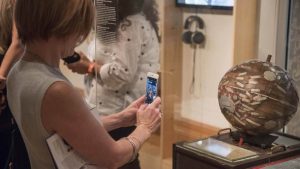
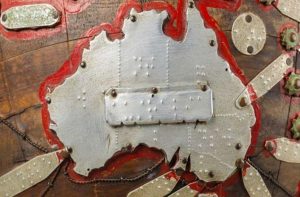
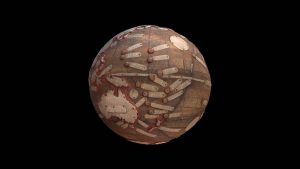
One of Tunley’s braille globes was selected for inclusion in a 2018 State Library Exhibition, Magnificent Makers http://makers.slq.qld.gov.au/. The globe required conservation treatment, and due to its fragility was not able to be used or interacted with in the way it was intended in the exhibition, or by library clients. This was identified as a barrier to access, which affects many collection items in libraries and museums. Look, but don’t touch may be appropriate for some collections, where the visual impact is a central part of the experience. But for a Braille globe, in particular, not being able to touch the Braille renders the object a mere curiosity, rather than a powerful link to the experience of visually impaired children learning about the world.
State Library wanted to explore the possibilities of 3D printing of collection objects at the highest quality, as a way to bring objects out of display cabinets. 3D models were created using scanning and photogrammetry to capture the details of the globe at very high levels of detail. The 3D models of the globe and the globe and its stand were then enhanced and printable files developed. User testing was undertaken at Braille House by staff and volunteers with vision impairments, and indicated that the Braille markings in the reproduction print were difficult to discern as the Braille on the original had been worn down through use. It was decided to enhance the Braille marks in the 3D printed version. An industrial designer enhanced each braille marking to create even and legible Braille and then create the final printable files.
The 3D printed globe is available in the John Oxley Reading Room at the State Library of Queensland for viewing, and touching!
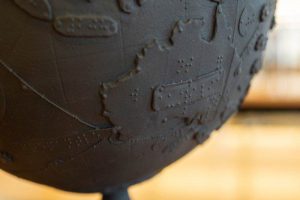
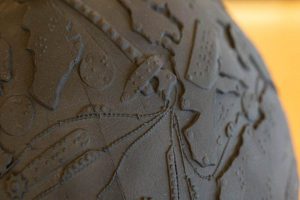
We wish to acknowledge some of the other institutions who submitted entries:
- Education Services Australia for “Schools Catalogue Information Service (SCIS) Infrastructure Upgrade”
The project to rebuild the SCIS infrastructure was focussed on improving the user experience for school librarians, through making accessing SCIS and importing records simpler, and enhancing the quality of data within SCIS records.
- RMIT University for “Alma D for Managing Digital Resources”
Alma D is a cloud based digital collection repository system and a new feature of the Ex Libris ILMS Alma, which enables the user to manage digital resources alongside print and electronic within the same system.
- Victorian Parliamentary Library and Information Service for “Electorate Maps site”
The project provided Members, electorate officers, parliament staff and members of the public with a comprehensive set of online electorate maps, showing Federal, State and Local Government electoral boundaries, with overlays of a wide range of points of interest within each electorate.
- Bond University Library for “Journal Request – Accelerating Systematic Reviews”
The Centre’s goals for this feature were to streamline the processes of sourcing full text through the automation of document delivery requests for articles. Specifically, for an individual starting with a set of citations in Endnote to submit a batch of requests with no manual typing or pasting of citation data into an online form or interface. The Library’s goals in this project were to tailor its document delivery (resource sharing) service to support the Centre’s research through the automation of batch request submissions.
- University of Wollongong University for “Library Makerspace”
The UOW Library Makerspace offers students a technology-rich, highly creative environment to innovate, create and share their learning and knowledge outside of formal study channels in a discipline inclusive setting.
